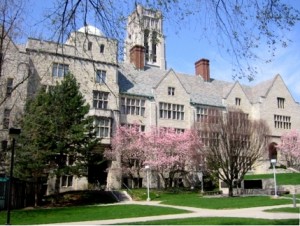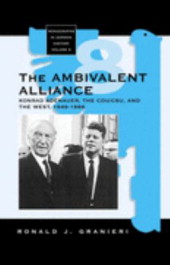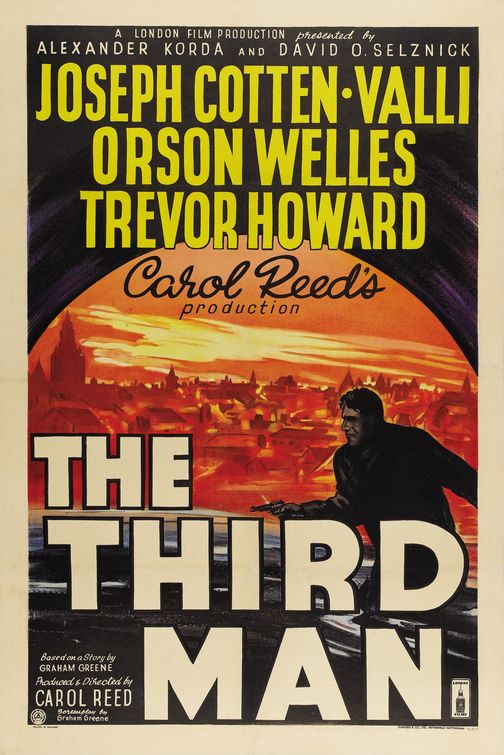By Ronald J. Granieri, on Mon Jul 16, 2012 at 8:30 AM ET “It must be great being a college professor. You get summers off!”
 All professors have probably heard this sentiment, in one form or another. It is usually accompanied by a sigh, the commenter wishing that she had such a cushy life. Though as many times as I have heard it, I know that it is not necessarily intended as a slight or a criticism. Most often, it is expressed as a good-natured if ignorant observation about the unusual perks of a somewhat exotic job, rather like when people tell flight attendants, “Wow, you get to fly all over the place for free!” All professors have probably heard this sentiment, in one form or another. It is usually accompanied by a sigh, the commenter wishing that she had such a cushy life. Though as many times as I have heard it, I know that it is not necessarily intended as a slight or a criticism. Most often, it is expressed as a good-natured if ignorant observation about the unusual perks of a somewhat exotic job, rather like when people tell flight attendants, “Wow, you get to fly all over the place for free!”
What makes academic life seem so exotic is that being a professor is more like practicing a medieval craft than pursuing a modern profession. As befits a world of robes, elaborate ceremonies, and gothic quadrangles, universities maintain a system of unique rewards and demands that harkens back to pre-modern times.
Practically, this means that the work habits of academics are hard to reconcile with the patterns of most normal professions. Academics are supposed to do two things—produce knowledge and share that knowledge with the larger community. They are also, according to tradition, supposed to govern and police themselves. Although that does not mean what it used to, when universities had special laws and even their own jails (some of which are preserved as tourist sites in European university towns such as Heidelberg in Germany) it still means that universities pride themselves on being governed by their own—deans, directors, chairs, and presidents drawn from the faculty.[1]
In present parlance, that means university faculty members are evaluated according to the classic trilogy of research, teaching, and service to the academic community.[2]
Here we get at the root of the contrast between what people think professors do and what they actually do. For the things that are most visible to the outside world—teaching in the classroom, meeting with students in office hours, grading assignments—is also only a part of what academics are expected to do. When junior faculty sigh and say they “really need to find time to do my own work,” they are rarely referring to teaching. Indeed, even the most dedicated teacher who devotes time to developing and preparing new courses is going to need a lot of time alone to gather and develop new knowledge. That means everything from reading and reviewing the newest literature in their field to working on their own projects. None of these tasks lend themselves to punching a clock. Academics are paid to think and read and write, which means a lot of their time is unstructured, and they have freedom to organize it according to their own priorities. That is the positive view. The less positive view is to note that unstructured work means that it is never really over. There is always more to read, and those books and articles don’t write themselves.
 So academics have to deal with less immediate but more constant pressures than people in other professions, all the year round. That is not a complaint, since I am sure that a lot of people in other types of jobs wish the pressures they felt were less tangible, but it is something to think about before claiming that because professors only teach a few classes a semester, or do not teach in the summer, they have a lot of “free time.” So academics have to deal with less immediate but more constant pressures than people in other professions, all the year round. That is not a complaint, since I am sure that a lot of people in other types of jobs wish the pressures they felt were less tangible, but it is something to think about before claiming that because professors only teach a few classes a semester, or do not teach in the summer, they have a lot of “free time.”
If those outside academe have a hard time understanding what goes on there, that is also because the practical details of academic life can vary greatly depending on both the type of university or college and the field in which an academic operates (and of course upon whether one is on the tenure track). Schools can range from teaching-heavy colleges (which would include both small private institutions and satellite campuses of state universities, as well as community colleges) where the average professor is expected to offer four or five courses a semester (and do all of her own grading) to the elite research universities where the load is usually two courses a semester—perhaps less, if the faculty member has special administrative responsibilities such as chairing a department or directing an institute—and where most of the grading is done by graduate students, as part of their apprenticeship before beginning their own academic careers.[3]
Teaching and research exist in tight, inverse proportions: the lower the teaching load, the higher the research expectations.[4] What those research expectations may be depends on the field. In the natural sciences, successful academics are expected to manage a laboratory and conduct a range of experiments. That means hiring and supervising a small army of student assistants, and applying for and managing the large outside grants necessary to fund the operations. Natural scientists also publish several research reports and articles a year. Most of those publications will be multi-authored, which (to put it most charitably) allows scientists to leverage their work into more publications than they could have produced on their own. Humanities and social science professors publish fewer and longer pieces—journal articles and books, usually single-authored—and are less dependent on labs and grants, except when they need to travel to archives.
Critics ranging from undergraduates unable to get an appointment to complain about midterm grades to Wall Street Journal op-ed writers have attacked the attention faculty pay to what can appear to be unnecessarily esoteric research.[5] Imust admit to having mixed emotions about these criticisms. There is nothing wrong with demanding that faculty remember their responsibility to share their knowledge with non-specialists, and I am a firm believer in the importance of teaching. What such critics tend to miss, however, is the responsibility of professors not only to repeat old knowledge but to create new knowledge as well. At their best, such criticisms can serve to puncture the pomposity of over-specialized academics. At their worst, they sink to the level of the know-nothings who want to eliminate the library budget because no one has read all the books that are already in it.
Read the rest of…
Ronald J. Granieri: A Glimpse Behind the Ivy Curtain
By Ronald J. Granieri, on Tue May 15, 2012 at 9:15 AM ET [Click here to follow the entire RP Debate]
My first impulse when I heard this story was, I admit, “Wow, what a spectacular piece off oppo research. Now Mitt Romney can be pigeonholed by people who were never going to vote for him anyway as both a gay-basher and the guy who strapped his dog to the roof of his car.”
[Recent self-serving protestations by the WaPo ombudsman aside, no one can deny that there were reasons why playing up particular aspects of this story made sense in the midst of our current debate.]
My second impulse, which I shared in a personal message to the RP, was “Having known some rich privileged [jerks] in high school I am not surprised to hear that rich, privileged Mitt Romney was a [jerk] in high school.”
Neither of those impulses, however, completely expresses my mature thoughts on the matter. Which gets back to the RP’s original point (and Steve’s) that there is a big difference between the impulsive acts of idiot teenagers and the (hopefully) mature positions of thoughtful adults.
Upon mature reflection, the story of Mitt Romney’s actions makes me feel a combination of anger, disgust, and sadness.
I attended an elite boys’ high school myself, though it was not a boarding school like Cranbrook, and I graduated high school exactly twenty years after Willard did. Things had changed somewhat in the intervening decades, and have changed even more since then. So the experiences are not identical, but they do rhyme: I saw and experienced the kind of casual sneering cruelty that adolescent boys can mete out to each other in a culture of macho preening and rigid social hierarchy. A few times I was on the direct receiving end of it, though most of the time I was a bystander.
Thankfully I never witnessed or experienced the kind of physical attack described in the recent newspaper accounts. Nevertheless, certain memories still bother me 25+ years later, and it is also true that I can never look at some of my former classmates (especially those now more active in public life) without at least some bitterness. If any of them were to be on a ballot, I would have a hard time voting for them. So I can understand that some of Romney’s classmates continue to have ambivalent feelings about him so many years after Cranbrook.
Does that mean that one’s behavior in high school reveals permanent and enduring elements of one’s character and should completely shape our view of the adult? God, I hope not. If we can credit other people with “evolving,” then we should all be able to accept that people can overcome the callow idiocy of youth and become more well-rounded and empathetic human beings.
But because we accept that people can learn from their youth and grow beyond it, we should expect, even demand, that when a public figure is confronted with questionable deeds and words from his/her past, that public figure will own the past and explain how it fits into the present. Complaining about the story’s publication is pointless at best, and pretending that the past does not matter is even worse. If Mitt Romney wants to run for president, and to make use of his personal history in his campaign, then he has to accept that the darker shades of his personal history will be discussed as well. The challenge for him, and for those who would defend him, is not to get lost in semi-denials and hemi-demi-apologies, but to own his past actions and explain how if at all they contribute to making him the man he is today.
Just as the history of nations includes both light and dark chapters, both of which need to be analyzed and understood honestly and completely, an honest assessment of a personal history should not try to evade unpleasant topics. It is Romney’s responsibility to address the past, and the responsibility of the rest of us to listen to his story and decide how to evaluate both the boy he was and the man he is. Forgetting is never the proper approach. Honest, even painful, remembrance of the past is the only way to build a better future.
By Ronald J. Granieri, on Mon Mar 26, 2012 at 11:00 AM ET  Ron Granieri’s Response Ron Granieri’s Response
[Click here to follow the full debate thread]
This is a fascinating question. Although I am not sanguine about Romney’s chances no matter who he picks, his choice will help shape the future of the GOP, just as the choice of Sarah Palin has, for better or worse, helped shape the debate within the GOP since 2008.
With that in mind, I will say two things:
1. If Mitt picks another white guy, no matter his ideological or geographical advantages, he loses. Period. it is not tokenism, but simple recognition of the demographics of the electorate and the hole that the primary discussions have dug for the party that leads me to that conclusion.
 2, He also needs to shore up his right. Even his worst enemy knows that. He could also use someone with a lot more zip to deliver attacks. So, I do not make predictions , but I think Allen West should stay by the phone.
By Ronald J. Granieri, on Mon Feb 20, 2012 at 10:30 AM ET  Ron Granieri: Rebuttal #2 Ron Granieri: Rebuttal #2
[Artur Davis’ Provocation, Robert Kahne’s Rebuttal #1]
These days, when people speak abstractly about the kind of President the country needs, they usually say that it should be someone with legislative experience, who can reach across the aisle to compromise with the other party, who can make difficult decisions, and who enjoys the respect, even friendship of other world leaders, thus improving the international standing of the United States.
In my lifetime, we had just such a President, and no one appreciated him much. He still receives only occasional credit from history and policy geeks, and makes little impression on the public memory, never showing up on anyone’s list of the greatest Presidents. And yet, the closer you look at the actual record, the more of a gem he appears to have been.
I am talking of course about Gerald R. Ford.
I can hear the gasps now. Wait, you say, you mean the guy who fell down the stairs of Air Force One and helped launch the career of Chevy Chase and “Saturday Night Live?” The guy whose name graces the title of one of John Updike’s lamer late novels? The guy who pardoned Richard Nixon? That Gerald Ford?
Read the rest of…
The RPs Debate Presidential Greatness: Ron Granieri Rebuts
By Ronald J. Granieri, on Mon Feb 6, 2012 at 4:00 PM ET Ron Granieri’s Second Response
[Krystal Ball’s Provocation; Artur Davis’ Rebuttal #1; Jeff Smith’s Rebuttal #2; Ron Granieri’s Rebuttal #3; The RP’s Rebuttal #4; Ron Granieri’s First Response; Rod Jetton’s Rebuttal #5; The RP’s First Response:; Jimmy Dahroug’s Rebuttal #6; Artur Davis’ First Defense; Krystal Ball’s First Defense]
Krystal crystallizes the debate down to its key element, so let me offer this counter question:
Do the American people prefer logic....
 Or FABULOUS PRIZES!!!!!!?
By Ronald J. Granieri, on Mon Feb 6, 2012 at 11:00 AM ET Ron Granieri’s First Response
[Krystal Ball’s Provocation; Artur Davis’ Rebuttal #1; Jeff Smith’s Rebuttal #2; Ron Granieri’s Rebuttal #3; The RP’s Rebuttal #4]
Touché, Jonathan (he drawled while slouching in an old office chair…). You are quite right that Gingrich is no Reagan, nor are any of the other impostors. The analogy is flawed, but nonetheless retains its admonitory power. Indeed, as Robert Reich has written elsewhere, liberals should temper their enthusiasm for a Gingrich candidacy because even a small percentage chance of his election is too much.
Ultimately, all such comparisons should make us remember Jonathan’s favorite philosopher, Karl Marx, who famously wrote in The 18th Brumaire: “Hegel remarks somewhere that all great world-historic facts and personages appear, so to speak, twice.
He forgot to add: the first time as tragedy, the second time as farce. Caussidiere for Danton, Louis Blanc for Robespierre [Gingrich for Reagan]….precisely in such epochs of revolutionary crisis they anxiously conjure up the spirits of the past to their service, borrowing from them names, battle slogans, and costumes in order to present this new scene in world history in time-honored disguise and borrowed language.”
Peace out.
By Ronald J. Granieri, on Mon Feb 6, 2012 at 10:00 AM ET 
Ron Granieri: Rebuttal #3
[Krystal Ball’s Provocation; Artur Davis’ Rebuttal #1; Jeff Smith’s Rebuttal #2]
I understand the premature Schadenfreude that so many Democrats are feeling as they rub their hands gleefully and imagine how easy it will be to pick off the weakened Republican nominee after this primary fight.
I can also see why so many writers imagine that this is 1984 or 1972 or 1964 all over again, with an opposition party hopelessly captive to ideological extremists furiously working toward massive defeat. Maybe it will be. I am not much for predictions. Being a historian means I have spent my professional life shaking my head over predictions later proven to be false.
With that in mind, I will only offer this memory of my father, who would have been 75 this past Wednesday. It was late 1979, and my father, a lifelong Democrat, was bemoaning the weakened position of President Carter. (He would eventually support Ted Kennedy’s rebellion against the President, which should give you an idea of his positions on things.)
Read the rest of…
The RPs Debate the GOP Slugfest: Ron Granieri Rebuts
By Ronald J. Granieri, on Mon Jan 30, 2012 at 9:30 AM ET  Ron Grainieri: Rebuttal #2 Ron Grainieri: Rebuttal #2
[The RP’s Provocation, Artur Davis’s Rebuttal #1]
Artur raises a crucial point, whether the money raised from gambling will really make that much of a difference, that I think deserves close attention.
As the proud product of parochial schools whose existence depended upon Bingo, I am well beyond worrying about the moral implications of using proceeds from vice to pursue virtuous ends. Considering how governments at various levels already derive revenue from other vices, such as tobacco and alcohol, as well as already existing lotteries, I view the moral debate on legalized and regulated gambling as forced and ultimately irrelevant. It is far too late for the brothel denizen known as the treasury to wish to regain its virginity.
I will say that I do not like the fact that the gambling industry has succeeded in re-christening (re-luciferizing?) itself as the “gaming” industry, which I consider a classic example of transparent mendacious marketing. It is supposed to make the activity appear somehow wholesome and entertaining, and to encourage us to avoid thinking about the whole, “most of the people who play lose their money” angle. Spare me. People play games like Missile Command (the greatest video game in the history of entertainment) for the fun of the game, and are happy to know that every quarter so spent is lost forever. Slot machines only exist because people are gambling on the hope of winning more money. To pretend otherwise is an insult to the intelligence of anything with a pulse.
By Ronald J. Granieri, on Mon Jan 23, 2012 at 10:30 AM ET  Ron Granieri: Rebuttal #4 Ron Granieri: Rebuttal #4
[The RP’s Provocation; Artur Davis’ Rebuttal #1; Rod Jetton’s Rebuttal #2; John Y. Brown, III’s Rebuttal #3]
I have to admit that I have had a serious bias against Tim Tebow since his college days, a bias that has its roots in a fundamental theological difference.
You see, everything about Tim Tebow is an affront to my deeply held beliefs, as communicated to me through the Church to which I have belonged since birth.
I am referring, of course, to the Church of the Classic Drop-Back Quarterbacks.
How well and with such joy I remember sitting on Sundays in The Church of the Three Holy J’s [Jack, Joe, and Jim—three names holy to all Western New York football fans] as the priest opened each service with the Sign of the QB: “In the name of Unitas, and of Starr, and of the Perfect Spiral, Amen.” I can still recite entire passages from Scripture, such as this from The Sermon of Yankee Stadium, 1958 [John 19: 82]:
“Blessed are they who, when the game is on the line, can stand in the pocket and deliver the ball, for they shall win The Greatest Game of All Time.”
I also clearly remember the passages from the old Baltimore [Colt] Catechism:
Q. Why did God make the Quarterback?
A: He made him to read the defense, to identify the open receiver, and to lead that receiver to the End Zone with an accurate throw.
For one whose beliefs are as deep and traditional as my own, Tim Tebow’s style of play is nothing less than blasphemous. Of course, I am used to having my beliefs insulted by both players and an elite sports media that has rushed time and again to declare my beliefs antiquated and ill-suited to the present. How often have we been told that the “Quarterback of the Future” will be more mobile, less reliant on the Deep Out? Who after all can forget Sports Illustrated crowning Randall Cunningham as “The Ultimate Weapon,” the infamous “Slash Heresy,” or even the outburst of Flutopian Enthusiasm in my own home region? Of course, in each case, I have watched those heresies flower and wither, as championships continue to be earned by classic quarterbacks such as Brady, Rodgers, Warner, and Manning.
Read the rest of…
The RPs Debate Tim Tebow: Ron Granieri Rebuts
By Ronald J. Granieri, on Tue Jan 17, 2012 at 12:00 PM ET  Ron Granieri: Rebuttal #3 Ron Granieri: Rebuttal #3
[The RP’s Provocation; Jason Atkinson’s Rebuttal #1; The RP’s First Defense: Jason Atkinson’s First Response; Artur Davis’ Rebuttal #2; The RP’s Second Defense; Artur Davis’ First Response]
I have avoided getting into this talk because, amusingly enough, I really do not have a clear opinion.
Like the RP, I have never really smoked weed, but know plenty of people who have and who have not turned into the giggling dope fiends of Reefer Madness. I appreciate the arguments about enforcing existing law, and also the dangers of gateway drugs, but I can also see the argument that decriminalizing small amounts for personal use and regulating the trade would actually be a net plus for the treasury (combining a new tax revenue stream and lower police costs).
I do think, however, that the debate tends to gloss over the important point of social costs. Legalizing weed will require plenty of regulation, and the need for such regulations tends to get lost in all the talk about how awesome it will be to smoke ’em if you got ’em. Proponents of legalization love to point out all the damage that is done by alcohol, and they have a point.
Read the rest of…
The RPs Debate Legalizing Marijuana: Ron Granieri Rebuts
|
Ronald J. Granieri’s Links: |
|
|
 All professors have probably heard this sentiment, in one form or another. It is usually accompanied by a sigh, the commenter wishing that she had such a cushy life. Though as many times as I have heard it, I know that it is not necessarily intended as a slight or a criticism. Most often, it is expressed as a good-natured if ignorant observation about the unusual perks of a somewhat exotic job, rather like when people tell flight attendants, “Wow, you get to fly all over the place for free!”
All professors have probably heard this sentiment, in one form or another. It is usually accompanied by a sigh, the commenter wishing that she had such a cushy life. Though as many times as I have heard it, I know that it is not necessarily intended as a slight or a criticism. Most often, it is expressed as a good-natured if ignorant observation about the unusual perks of a somewhat exotic job, rather like when people tell flight attendants, “Wow, you get to fly all over the place for free!” So academics have to deal with less immediate but more constant pressures than people in other professions, all the year round. That is not a complaint, since I am sure that a lot of people in other types of jobs wish the pressures they felt were less tangible, but it is something to think about before claiming that because professors only teach a few classes a semester, or do not teach in the summer, they have a lot of “free time.”
So academics have to deal with less immediate but more constant pressures than people in other professions, all the year round. That is not a complaint, since I am sure that a lot of people in other types of jobs wish the pressures they felt were less tangible, but it is something to think about before claiming that because professors only teach a few classes a semester, or do not teach in the summer, they have a lot of “free time.”











